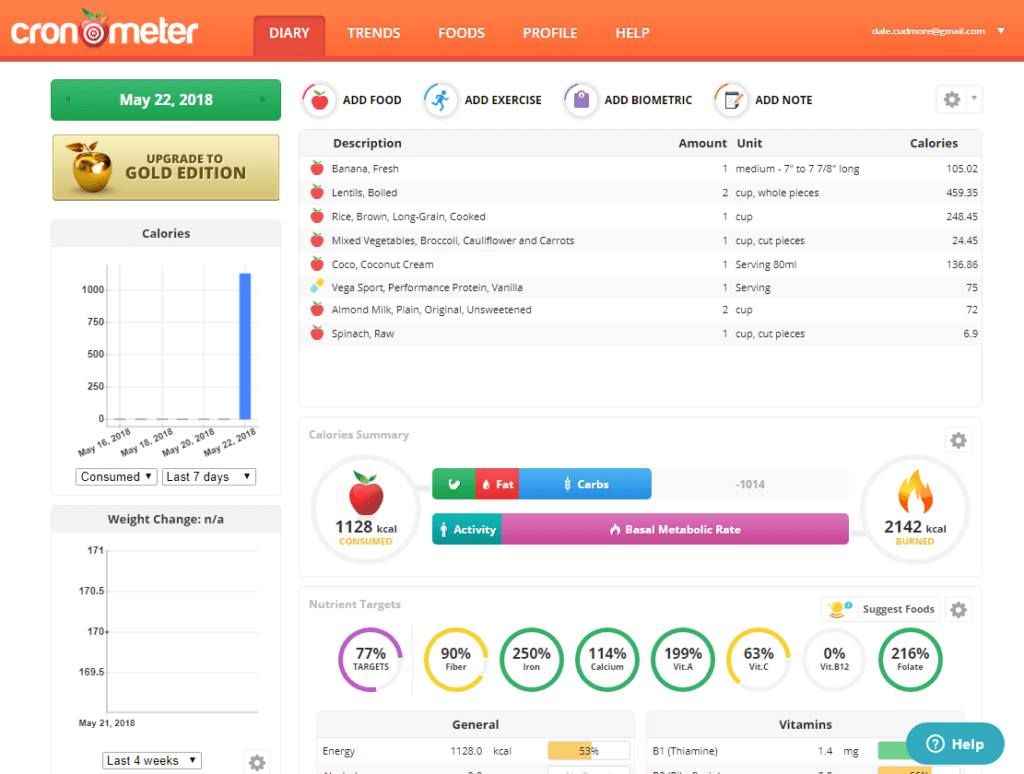

Let’s take a look at these methods and see when it is appropriate to use each one. There are 3 primary ways to log the food you eat: fixed serving size, weight, and volume. Now it’s time to get into the actual process of food logging itself. Today we’re sharing with you everything we’ve learned over the years to not only keep a food log that’s as accurate as possible, but also to do so without spending too much time or energy on it. But for food logging to be effective, you have to make an effort to be as accurate as possible with your logs.Īnd we’re going to help you do just that. We still stand by our assertion that food logging is the optimal way to transform your body whether you want to cut, bulk, or recomp. Instead of losing weight, he’ll actually be gaining weight because he’s eating more than he should be. Due to inaccurate food logging, even though Bob thinks he’s eating 2000 calories, he’s actually regularly consuming nearly 3000 calories per day. Now let’s say Bob’s calorie target is around 2000 calories per day. Which means that Bob actually ate 500-900 additional calories that are unaccounted for in his food journal. The cheeseburger that Bob logged as 370 calories is actually more likely to be in the realm of 800-1200 calories.

Not only is this the very first item that shows up when Bob searches for “cheeseburger”, so Bob is confident in his choice and adds it to his food journal. Bob searches for “cheeseburger” and here’s the first thing that comes up: He opens up Cronometer, a food logging app, on his iPhone to log the burger. Bob goes to the diner and orders a big, juicy cheeseburger. He’s following a flexible dieting plan put together by his online personal trainer. Let’s take a look at an example… How Bob Logs A Cheeseburgerīob is just a regular guy who wants to lose some weight and put on muscle. Instead, they have major issues with getting an accurate sense of their calorie and macronutrient intake because they’re just not very good at logging. In other words, the idea of logging their food drives certain types of people crazy because they see it as far too fussy and would prefer not to do any calorie counting at all.įor these types, we usually change strategies and switch to either meal plans or a rules-based diet.īut the majority of those who struggle with food logging don’t struggle for this reason. Now, for some of these people who don’t do well with food logging, the issue lies more with personality compatibility.

People who keep an accurate food log nearly always get consistent and expected results, while those who struggle with their food logs tend to get off track much more frequently. While there are a plethora of diets that can be effective in helping you reach your fitness goals, no rules-based diet (such as Paleo, Whole30, Atkins, etc.) can come close to matching the exactness and precision of flexible dieting with a food log.īut there’s one big problem with the food logging approach… If you’re looking to get optimal results from your diet, then food logging is hands-down the way to go.


 0 kommentar(er)
0 kommentar(er)
